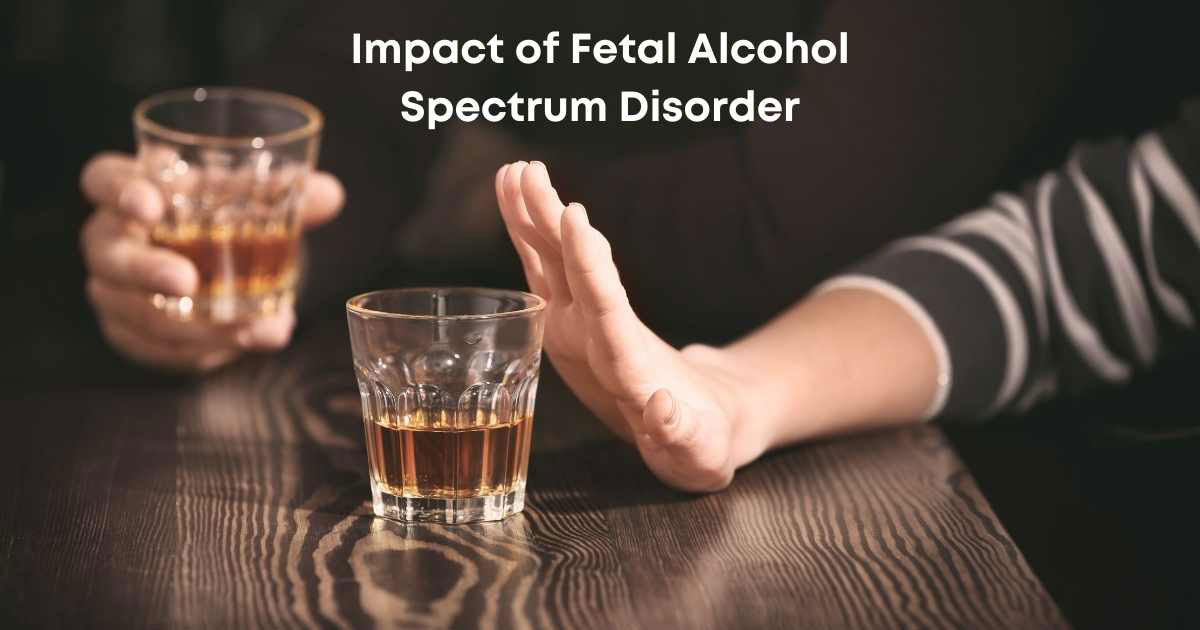
Impact of Fetal Alcohol Spectrum Disorder (FASD).
Fetal Alcohol Spectrum Disorder (FASD) profoundly affects individuals, families, and society. When a pregnant woman consumes alcohol, it can lead to a range of lifelong physical,
behavioral, and cognitive disabilities in her child. These challenges often go unnoticed until the child struggles with learning and social interactions. Families face significant
emotional and financial strain as they navigate the complex needs of a loved one with FASD. Schools and healthcare systems must adapt to provide specialized support, and the broader community
must work to raise awareness and prevent future cases. By exploring the multifaceted impact of FASD, we can better understand how to support those affected and work towards effective prevention strategies.
Impact of Fetal Alcohol Spectrum Disorder (FASD):
Individual Impact:
- Cognitive Challenges :
Learning Difficulties: Individuals with FASD often have problems with learning, memory, attention, and problem-solving.
Behavioral Issues: Impulsivity, poor judgment, and difficulty understanding consequences are common.
Physical Health:
Growth Deficiencies: Low birth weight and growth delays can be present.
Facial Abnormalities: Certain facial features, like a smooth philtrum, thin upper lip, and small eye openings, are associated with FASD.
Social and Emotional Struggles:
Social Skills: Difficulty understanding social cues and maintaining relationships.
Emotional Regulation: Increased risk of anxiety, depression, and other mental health issues.
Family Impact:
- Caregiving Challenges: Families often face the stress of managing the needs of a child with FASD, requiring extensive support and patience.
- Financial Strain: Increased medical, educational, and therapy expenses can be significant.
Societal Impact:
- Education System: Schools must provide specialized support and resources to accommodate the learning needs of children with FASD.
- Healthcare Costs: Increased medical care, including mental health services and interventions, contributes to higher healthcare costs.
Prevention:
- Awareness and Education: Informing women about the risks of alcohol consumption during pregnancy is crucial.
- Support Systems: Providing resources and support for pregnant women struggling with alcohol dependency can help prevent FASD.
There are no safe amounts of alcohol that can be taken during pregnancy. Additionally, no time during pregnancy is considered safe to consume alcohol.
It is important to note that Fetal Alcohol Spectrum disorder is not curable but early diagnosis can help manage symptoms.
By understanding the profound impact of FASD, we can direct efforts toward prevention, early intervention, and comprehensive support to improve the quality of life for those affected.

